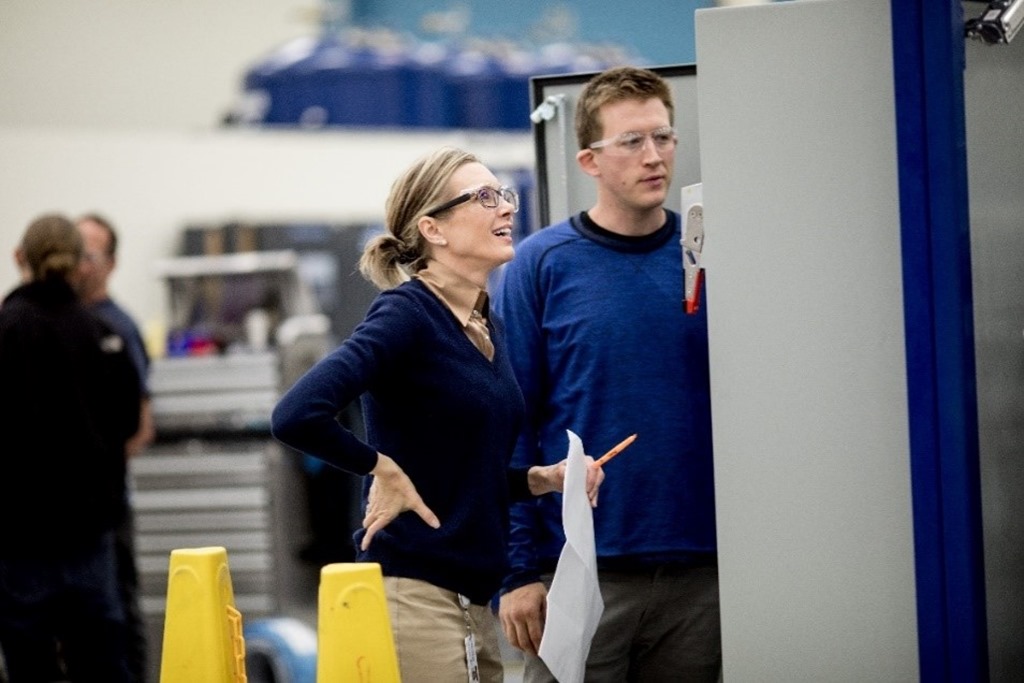Digital transformation in manufacturing has the potential to increase annual global economic value by $4.5 trillion according to the IDC MarketScape.i With so much upside, manufacturers are looking at how technologies like IoT, machine learning, and artificial intelligence (AI) can be used to optimize supply chains, improve factory performance, accelerate product innovation, and enhance service offerings.
Digital transformation starts by collecting data from machines on the plant floor, assets in the supply chain, or products being used by customers. This data can be combined with other business data and then modeled and analyzed to gain actionable insights.
Let’s take a look at three manufacturers—Festo, Kao, and AkzoNobel—and see how each one is using technologies like IoT, machine learning, and AI to accelerate their digital transformation.
Providing predictive maintenance as a service
Based in Germany, Festo sells electric and pneumatic drive solutions to 300,000 customers in 176 countries. The company’s goal is to increase uptime for customers by providing predictive maintenance offerings as software as a service (SaaS) offerings. Festo’s strategy is to connect machines to the cloud with Azure IoT and then enable customers to visualize data along the entire value chain.
One of the first SaaS offerings is Festo Dashboards built on Azure. Festo Dashboards provides a clear and intuitive status of equipment like sensor temperatures and valve switches. With Festo Dashboards, manufacturers can more easily monitor energy consumption, quickly diagnose faults, and optimize production availability.
Anticipating consumer trends for better manufacturing forecasting
Kao, one of Japan’s leading consumer brands, sees the consumer market evolving. Today, consumers prioritize their product experience over product quality. They also look to social media for purchasing guidance. These behaviors lead to forecasting challenges. To keep up with these changes, Kao sought to better understand individual customers and categorize trends into micro-segments. The company terms this approach “small mass marketing.” Kao designed a data analysis platform using Microsoft Azure Synapse Analytics and Microsoft Power BI to predict consumer trends for their detergent, cosmetic, and toiletry products. The Kao team combined data from real-time purchases, social media, and historical sales. Kao competes more effectively using predictive models, and chain store employees are empowered with real-time information for selling.
Reducing the development time of new paint colors
Dutch paint and coatings leader, AkzoNobel, is active in more than 100 countries. The company has honed the art of color matching for two centuries for cars, buildings, and interiors. One of the company’s businesses is developing the paint to repair cars when drivers have an accident. Manufacturers in the car and other industries constantly dream up new finishes to give their models an edge on the competition.
To keep up with rapid rate of change, AkzoNobel introduced Azure Machine Learning into its color prediction process. Previously, scientists labored painstakingly in labs to adjust, recalibrate, and tweak a color until it was just right. The company worked with its scientist and technicians to integrate machine mearning into their development process. The main impact is seen in the lab, where teams are now able to create more color recipes, more accurately, in less time. Previously, it could take up to two years to get a car color ready. Now AkzoNobel is seeing new paint colors ready in one month.
Next steps
For ideas on accelerating your digital transformation journey download, The Road to Intelligent Manufacturing: Leveraging a Platform, co-authored by Microsoft and Capgemini.
i IDC MarketScape: Worldwide Industrial IoT Platforms in Manufacturing 2019 Vendor Assessment


